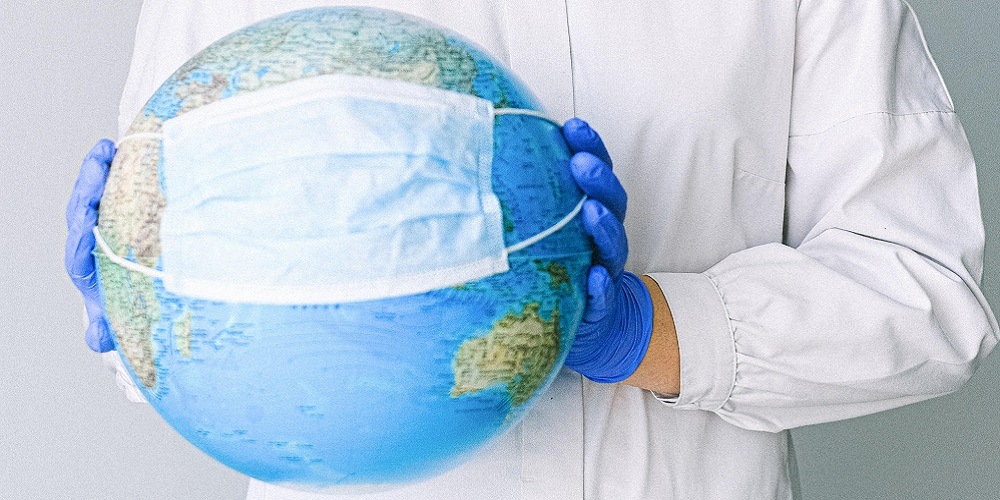The world endured the physical and mental stress of COVID-19 pandemic for about a year. Economies shrivelled and emotions drained. Finally, people can hope for survival, and getting back to normal- the COVID vaccine is just round the corner.
It is heartening to know that the initial vaccine candidates are 95% effective and contrary to apprehensions, can provide immunity that will protect for a longer period of time. Immunity, the power within the body because of which, a virus will not be able to harm us. In order for it be effective, however, the vaccine that provides immunity, requires an environment of trust.
Trust comes through transparency by the Government in its actions, and responsibility by the citizens in their behaviours. In a pandemic, one of the responsible behaviours of a citizenry is curbing disinformation and blocking rumours. Rumours can be deadly, just like the virus, and follow almost the same pattern for their spread, as does the virus.
A virus like the one causing COVID-19, spreads mainly because of three factors. One, the nature of the virus; that is, how capable it is of infecting one person and then bouncing on to the other. Two, the immunity in a person or population. When present, the virus gets killed by the body systems and is not able to route itself to another person. Three, the behaviors of people which facilitate or impede the viral transfer. If large majority of people keep washing hands, wearing mask and physical distance, the virus cannot make its way from one person to the other.
Along the same lines, the virus of misinformation also depends on three factors that enable it to spread fast and wide, and become “viral”. First is the nature of misinformation. Scientists have discovered that higher the level of sensationalism or novelty in a misinformation, more are the chances of its travel, compared to the real news. Second is the immunity or mental robustness of people; whether or not they ask questions to verify a new information. The third is the behavior of believing or forwarding any information without verifying it.
The consequences of apparently a benign act of just forwarding an information can be grave. During the early phase of current pandemic, a misinformation that methanol protects against Corona virus became viral in Iran. More than 700 people died because of consuming methanol, before the health ministry could take an action. The health minister had to acknowledge that we are up against two enemies; the Corona virus and the misinformation.
Many examples of misinformation kept doing rounds in Pakistan too; some of them still around. Opposed to the widely promoted, and evidence-based behavioral interventions like handwashing, and face mask, misleading information about steam inhalation, ginger tea or other herbal remedies remained in circulation. Apparently, these seem benign, but can be deadly if someone does not practice the evidence-based, and highly recommended behaviors believing that steam or tea has already protected them.
In today’s era of information technology and social media, everyone is in a position to send out “breaking news”. In the case of a pandemic, however, this breaking news can have grim consequences, including death. At the same time, however, we all need information about the new disease, how to protect ourselves from it, how to treat it and most importantly; how to navigate decisions about its vaccine. Information comes to us from different sources. The official statements by the government, the articles and conversations of public health scientists and experts, guidelines and recommendations of global bodies like the WHO and the CDC, and information shared by friends and family on social media and messaging apps.
How can we navigate between the right and wrong? The question sounds difficult but here are a few simple steps to make better decisions.
1. Weigh the source: Before believing the information, or sharing it with others, think about the person who has said it, or sent it. Even if the sender is a friend or a family member, you still need to assess their source. Similarly, check for fake social media accounts- and for that- look at how long a profile has been active, their number of followers and their most recent posts. If a journalist is ignorant even about a basic fact like a pandemic is declared by WHO Director General and not the U.N. Secretary General, surely her analyses are not credible.
2. Beware of the info-quacks and their false science: Someone’s personal experience of using a herb (e.g., ginger tea) or method (e.g., steam inhalation) and finding it effective, is not enough. Science evolves through systematic observations, their replication in experiments, and results from testing with large number of people at several different places. So, do not believe or adopt a practice found effective by just an individual, even if that individual is a proclaimed doctor.
3. Look for relevant expertise: In a pandemic, some people would behave as subject experts without actually being so. Do not believe in such people who are providing their analysis and recommendations without relevant expertise. For a new virus or its vaccine, surely a public health scientist is preferable to a professor of chemistry, just like a professor of chemistry would be a key expert in case of a chemical hazard.
4. Look beneath the surface: Misinformation can often be a packaging of incorrect information in the wrap of some true incident. This author recently came across an article on COVID-19 which started by admitting that the virus is genuine and must be stopped. The declaration lured the reader into confidence, but then the entire article was a piece of misinformation.
5. Check the currency: Many a times, an old picture, video or news is used in the garb of being new. Internet provides the option of going into the history of a photo, video or a news story. Explore and find out the history of that item with the help of tools available on the internet.
6. Ask around: Do not believe the information without applying the basic fact checks. Fact checking websites are available, and have been hugely used across the globe. Carefully process the information about new medicines/vaccines and look to the independent bodies like WHO or CDC to verify the claims. Do not believe the account of an individual or a small group of people about treatment remedies. If required, ask your doctor, or call a helpline that provide correct and credible information.
7. Lastly, and most importantly, ask yourself some essential questions. Where did this information come from? Is it true? Can it be someone’s agenda that I might be serving in ignorance? Will this information help someone, or cause more anxiety? Share the information only if you have satisfactory answers to these questions.
The writer is a health and risk communication scientist, and advises the national health ministry.


